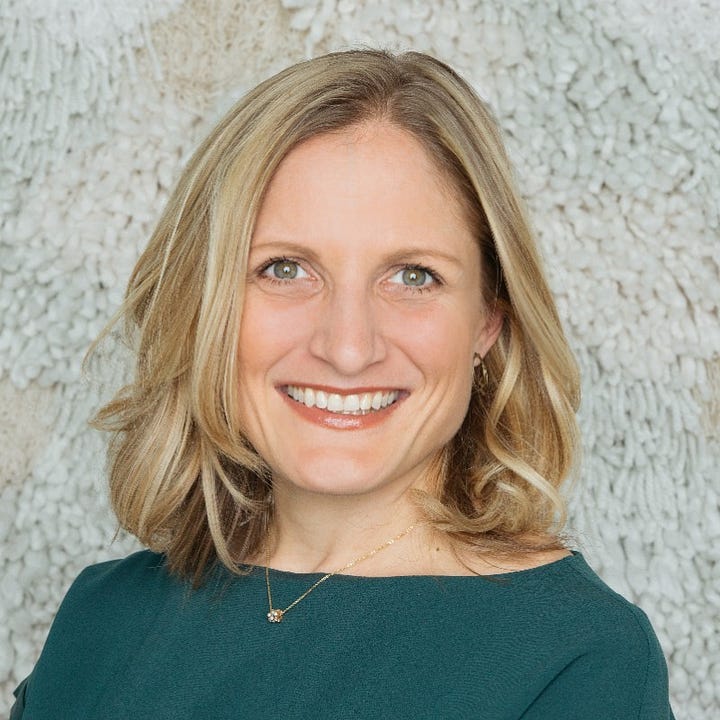📚What Work Can Learn from Silent Book Club
An Interview with co founders Guinevere de la Mare and Laura Gluhanich
Hello, It’s Julia, Founder of The Switchboard, a newsletter exploring the ways we communicate and connect at work and beyond. Thank you for being part of our community. I’m grateful to you for reading, reacting and commenting.
In March, I went to Silent Book Club for the first-time. It was such an awesome experience that I was inspired to reach out to the co founders to find out their story. If you enjoy this edition, consider sharing it and finding your local chapter of SBC.
What inspired you to start Silent Book Club?
Guinevere: Laura and I were friends living in the same neighborhood in San Francisco and we would often get together for a drink at a local French bistro. We were both avid readers, but in our hectic lives as busy professionals, we didn’t have a lot of free time.
We wanted the benefits of a book club, but not the extra labor it took to keep up with it. It was about getting our reading done rather than discussing specific books—hence the “silent” part. We wanted to carve out time to do something we loved doing, with people we enjoyed spending time with.
As our book of two grew to include a bigger circle in SF, other friends of ours joined in from Brooklyn, LA, and Seattle. That was the spark for a model with a network of chapters around the world. We had no idea it would go global. This concept of friends getting together in public, bringing a book, and reading really resonated.
How have you approached building community locally and globally?
Laura: We’ve learned what worked with each phase of growth. The internet and social media have helped us spread the word. What worked at 10 chapters didn’t work when we got to 60 chapters or 600 chapters.
For example, when we started, we would send a physical welcome packet, but that’s not sustainable. Now we provide virtual templates and guidelines, and have a subcommunity for the hundreds of chapter organizers to troubleshoot and share best practices.
Early on we documented our shared values for how we operate as an organization which has helped with decision-making over the years. We allowed chapters the flexibility to meet how, when, and where they want to, while also providing those core principles that are the basis of the organization. Meetups should be accessible and open, welcoming to all readers.
What lesson(s) could work culture learn from the way you organize Silent Book Club?
Guinevere: We empower local organizers and communities to do what works for them. We are trusting with autonomy while not micromanaging, and we provide guardrails. There’s no assigned reading in advance and at our events, we spend time not talking and reading. A lot of workplaces could use this approach — bring in good people and get out of the way.
We also lead with our core principles – making our events accessible and welcoming. We wrote community guidelines and have volunteer moderators who are clear about what we do and don’t allow. We invest time and effort into moderating the community.
Finally, unlike work, people don’t get paid for their time volunteering with us. But, we know time is valuable — we’ve invested a lot of our own time over the years. We remind people that we’re here to do the work because we feel good about it. We’ve heard from many people that it’s meaningful and that’s the reward — focusing on the impact.
Laura: We also enforce the “no asshole rule” — you need that as part of any community and it could benefit a lot of workplaces to implement a similar rule.
Looking back, do you have a special project you’re proud of supporting?
Guinevere: We’ve hosted fundraisers to support charities and community efforts that align with our mission. In San Francisco, we hosted a holiday fundraiser for Project Night Night to raise funds for a stuffed animal and books for children experiencing homelessness. In Chicago, we hosted sidewalk book sales to raise funds for a prison literature project. We’ve also partnered with the American Library association to unite against book bans and have encouraged voting during election years, especially in the United States.
As you look back, what is a moment of pride you feel from what you’ve created with Silent Book Club as you celebrate 1,000 chapters?
Guinevere: We are astounded by the reach and how many people are so invested in it. When we started, we joked that we would fill every bar with readers and we’re on our way.
Laura: It’s the volunteers who enable the larger community. These organizers are core to our community. We’ve given them the sandbox, and they’ve built it. I want to give huge credit to them for all they’ve made possible.


About Laura
Laura Gluhanich is Senior Director of Programs at Him For Her and cofounder of Silent Book Club, a global movement expanding literacy in shared spaces. Laura formerly led community teams at Google, Everwise, Ning and about.me, overseeing customer support, marketing and events for tens of millions of users. Laura lives with her husband and two dogs in Denver, CO, and sits on the board of KUNC and Colorado Sound.
About Guinevere
Guinevere de la Mare is a content designer, writer, and 15-year publishing veteran. She's the cofounder of Silent Book Club, a reading community with more than 500K members and monthly meetups in 1K cities around the world. She's the author of I'd Rather be Reading, published by Chronicle Books. Guinevere works as a UX writer and content designer at Google.
Thank you for tuning into this edition of The Switchboard. This career profile is based on a live interview conversation. I’m grateful to you for reading, reacting and commenting. If you enjoyed what you learned, please consider sharing it with a colleague or friend. Signing off for this edition. — Julia



Every open office should become a silent book club, that'd be fantastic. :D
The Silent Book Club sounds awesome. I will have to see if there’s a chapter near me. Thanks for another interesting read, Julia.